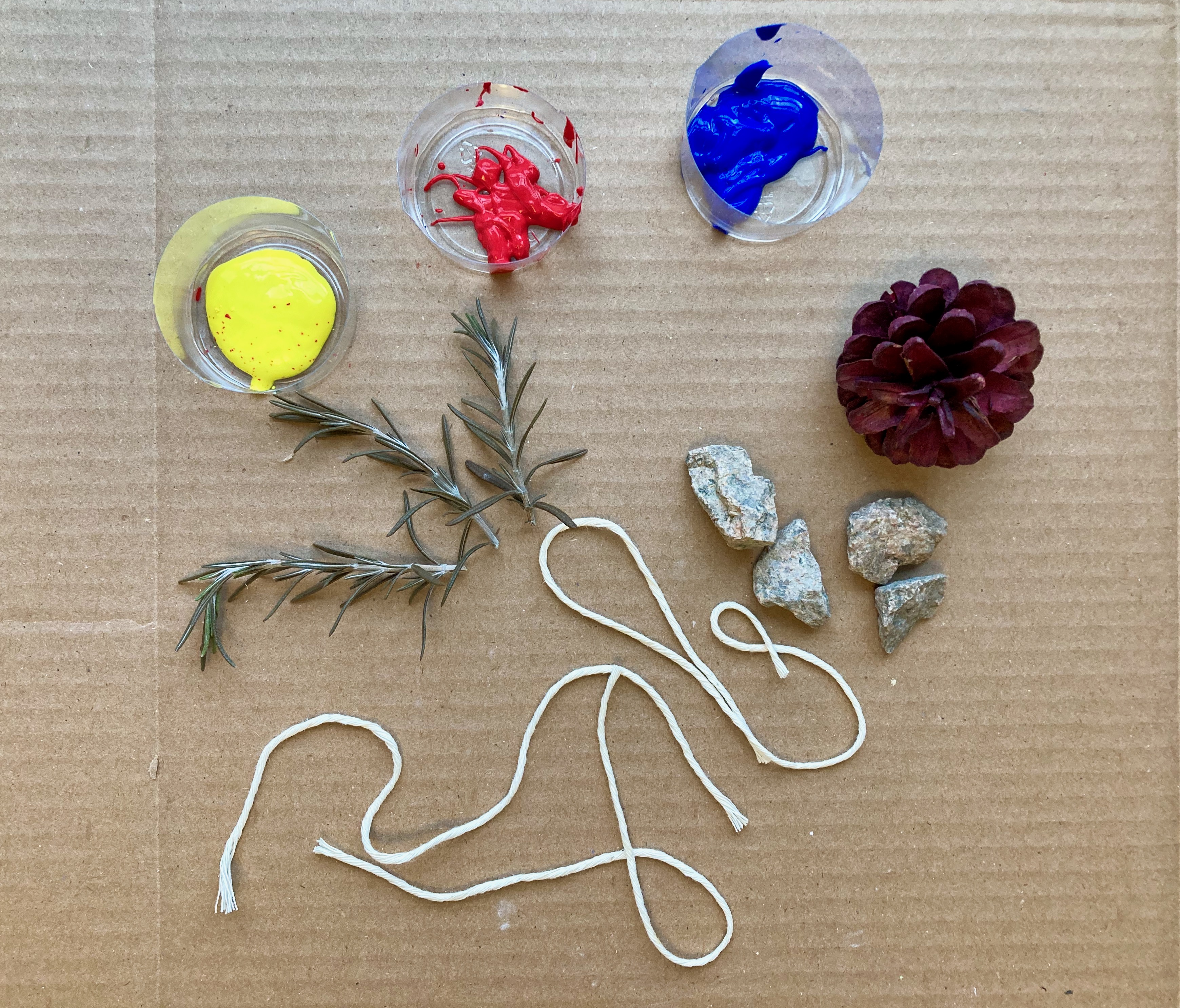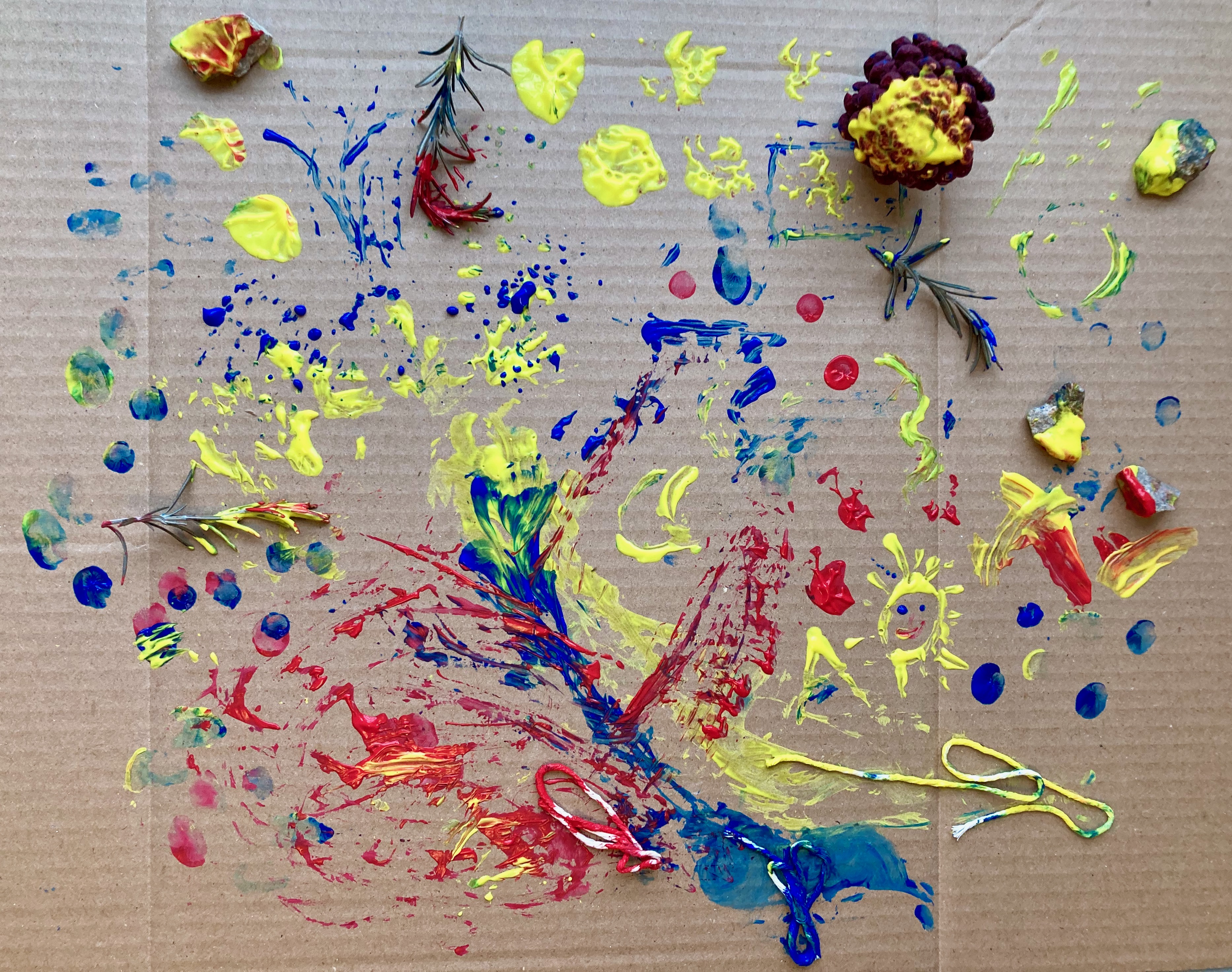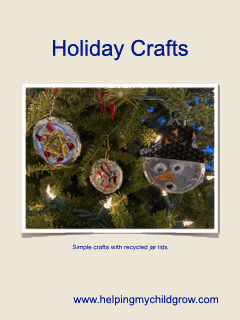I don't have a Paintbrush!
No paintbrush? You can still paint. Have fun exploring ways to paint without one.
Today we had lots of fun using sprigs of Rosemary from our over-grown plant, pine cones, stones, string and our fingers to paint on a big piece of recycled cardboard. This creative, sensory activity stimulated lots of discussion, experimenting and problem-solving:
- "What's the best way to get the paint onto the pine-cone?"
- "How can I paint with a stone?"
- "Why has the paint turned green?"
What you need:
-
Non-toxic, washable paint
-
Paint pots, or a washed recycled containers
-
Objects to use instead of paint brushes. Look around for things to use, e.g. forks, cotton wool balls, straws, sticks, leaves, stones
-
Pieces of paper and/or card
-
Newspaper, or a wipeable plastic cloth etc., to cover work surface
-
A cloth, or bowl of warm, soapy water and a towel (for washing hands at the end)

What to do:
-
Cover a surface with newspaper, or a wipeable plastic cloth. Place a piece of paper/card on top of the newspaper/cloth.
-
Choose the coloured paints that you want to use and pour some of each colour into your paint pots.
-
Choose which colour you want to use first. Dip the object you are using to paint with into the paint and use it to make marks (paint) on the piece of paper/card. Explore different ways of "painting" with your object,e.g. use the tip of a rosemary sprig like a paint brush, swish the paint covered leaves from side to side.
-
Try using a different coloured paint, or paint with a different object. What happens?
Activity develops:
- Fine-motor skills by strengthening finger and hand muscles
- Expressive skills
- Language skills
- Creativity
- Cognitive skills
Sensory Issues: Some kids, and adults, may experience tactile sensory issues working with some materials like paint (my son hates touching cotton wool and I dislike the feel of clay). Let them know that it is okay. Continue to provide opportunities to access the trigger materials but do not make them use them. If tactile sensory issues become a concern, then seek professional advice.
Other posts you might like:


